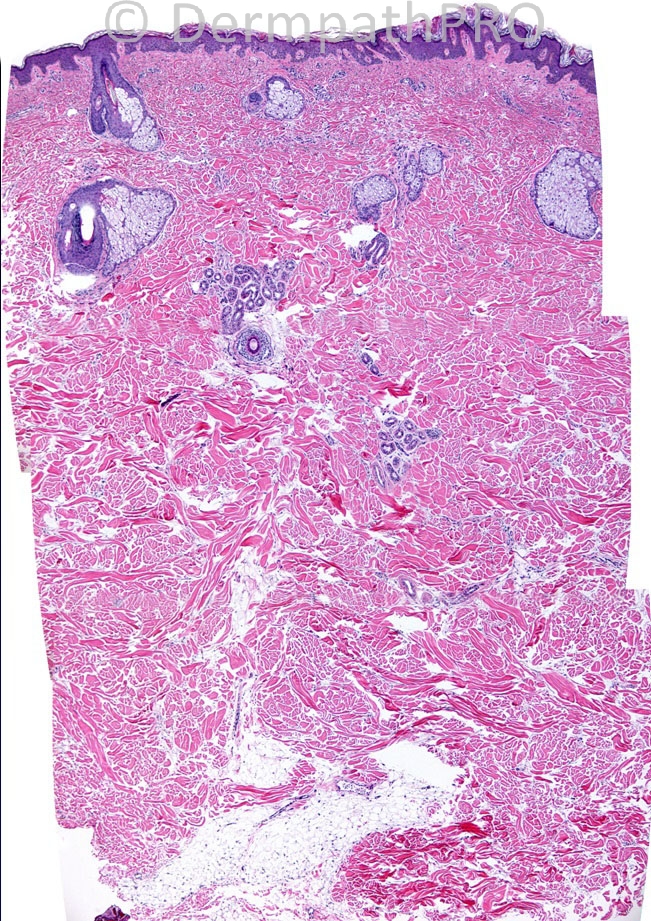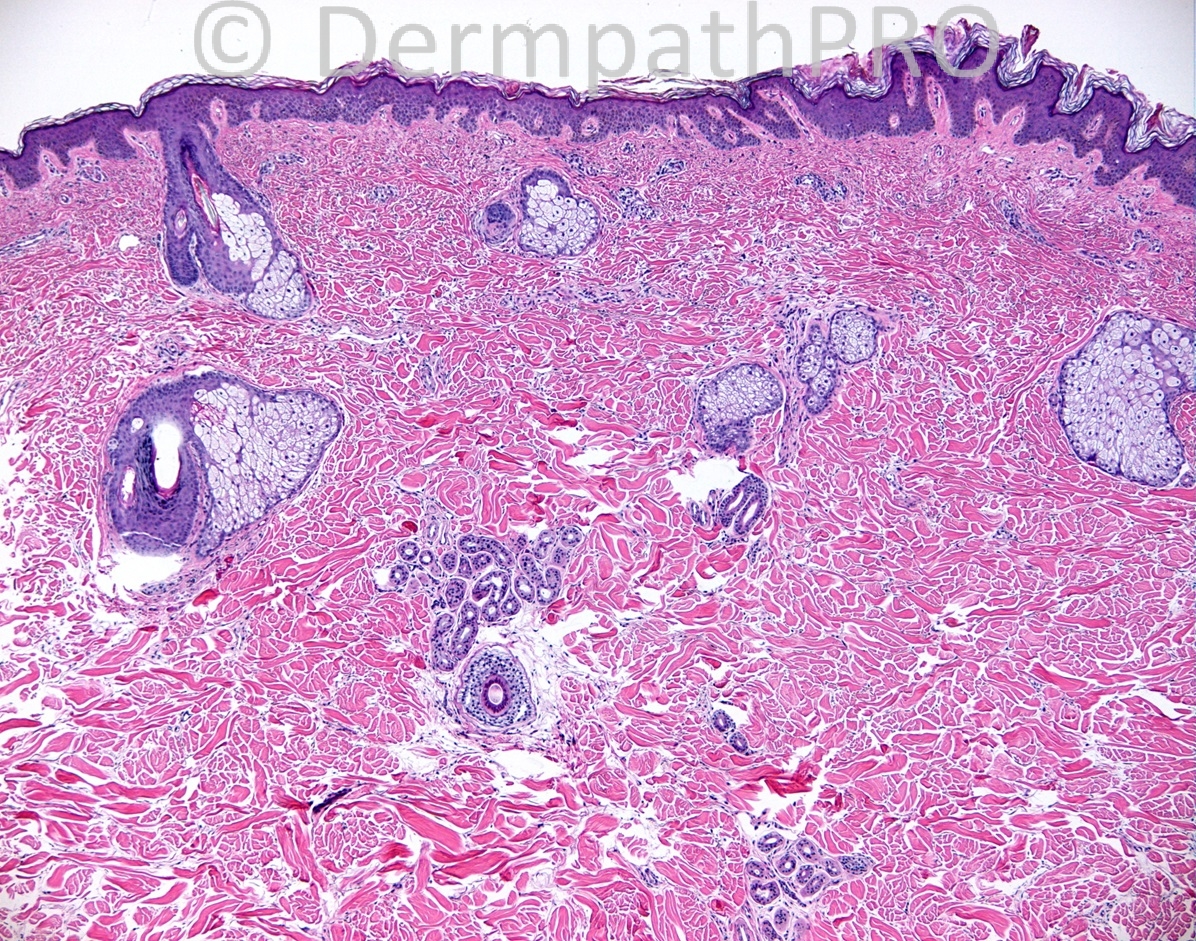Case Number : Case 818 - 6th August Posted By: Guest
Please read the clinical history and view the images by clicking on them before you proffer your diagnosis.
Submitted Date :
34 years old white man, carries a diagnosis of non-Hodgkin's lymphoma, and has been on chemotherapy for 3 months. He has a 1-2 years history of "tight" skin and dysphagia.
Case posted by Dr. Mark Hurt.
Case posted by Dr. Mark Hurt.







Join the conversation
You can post now and register later. If you have an account, sign in now to post with your account.